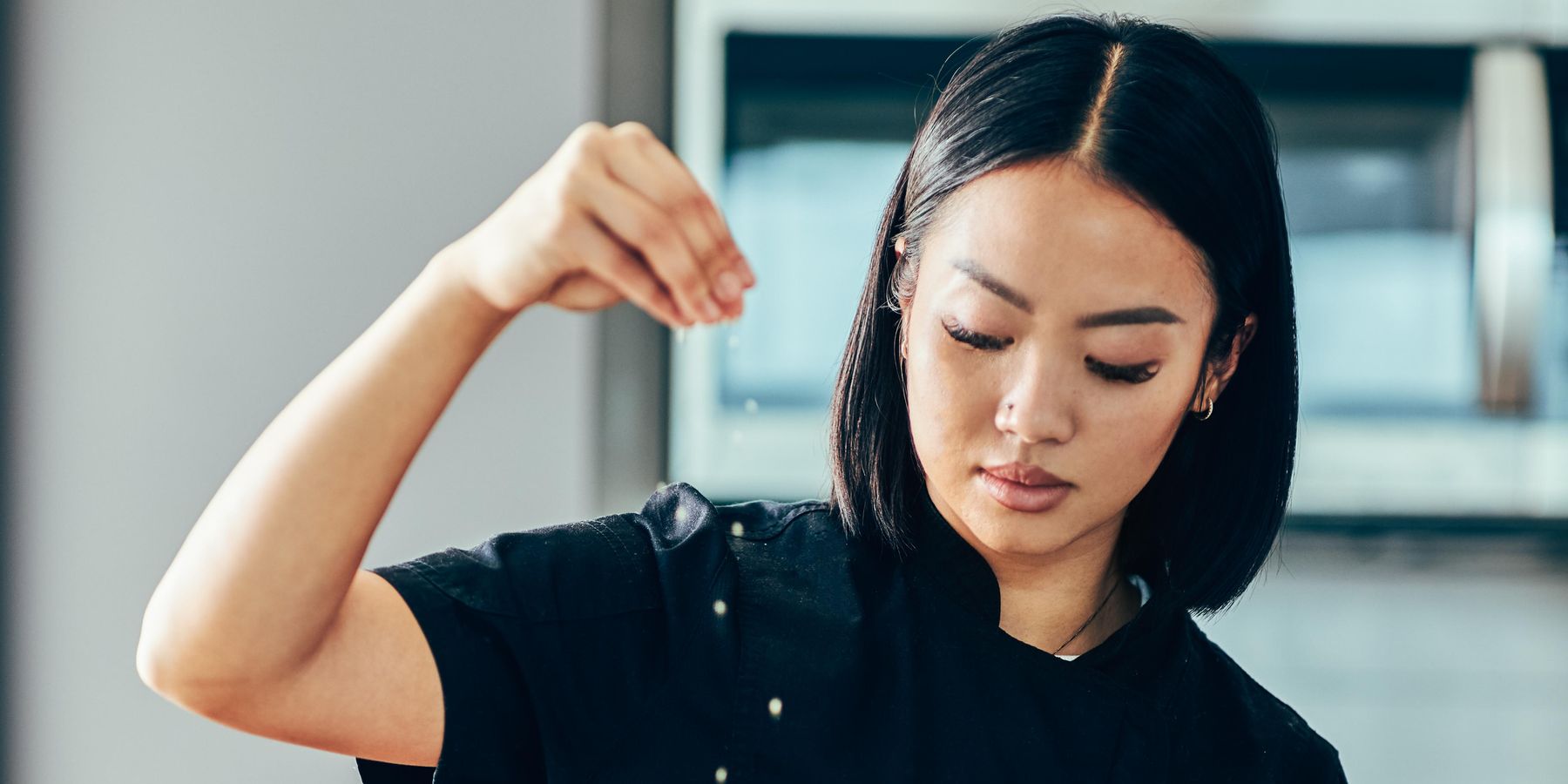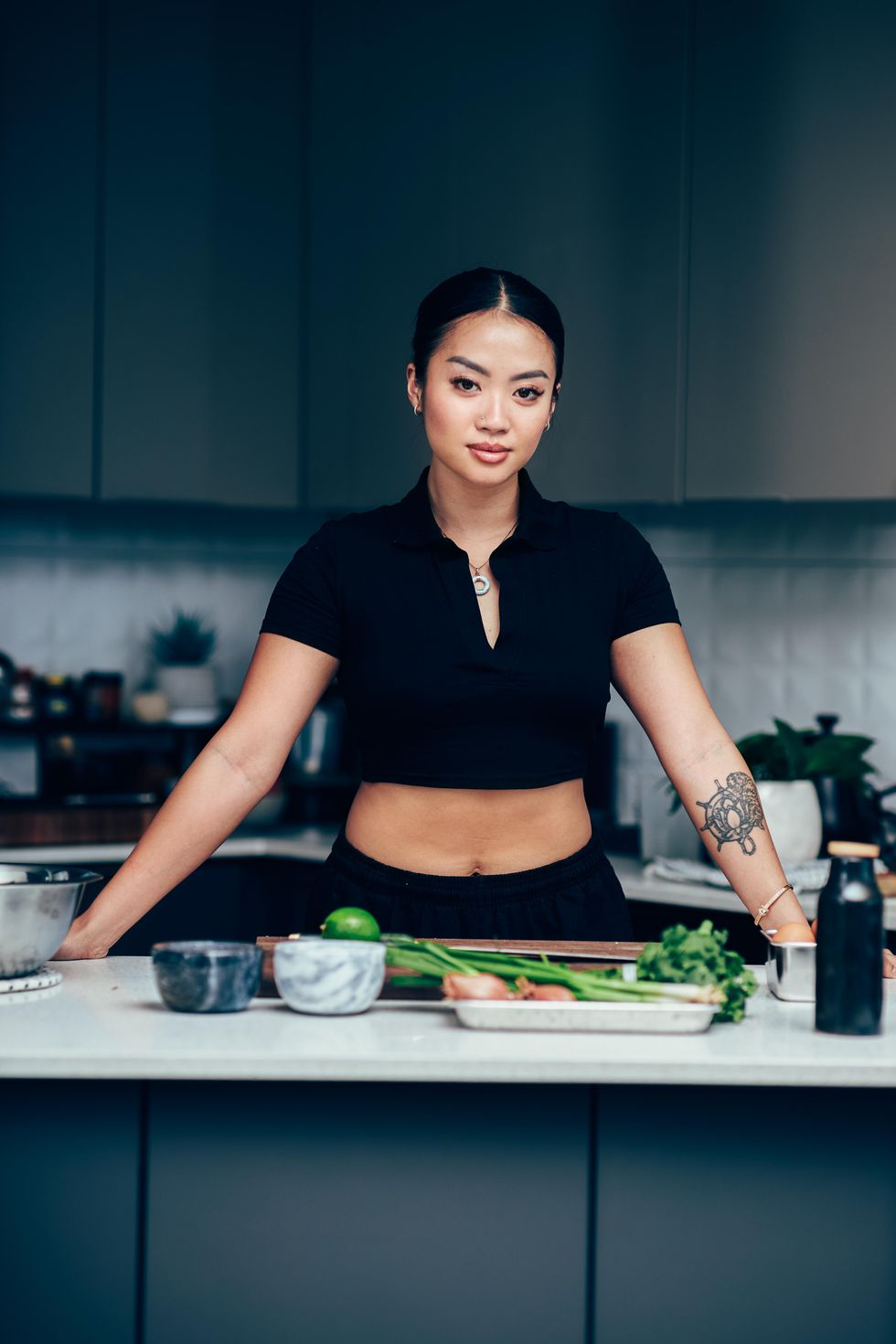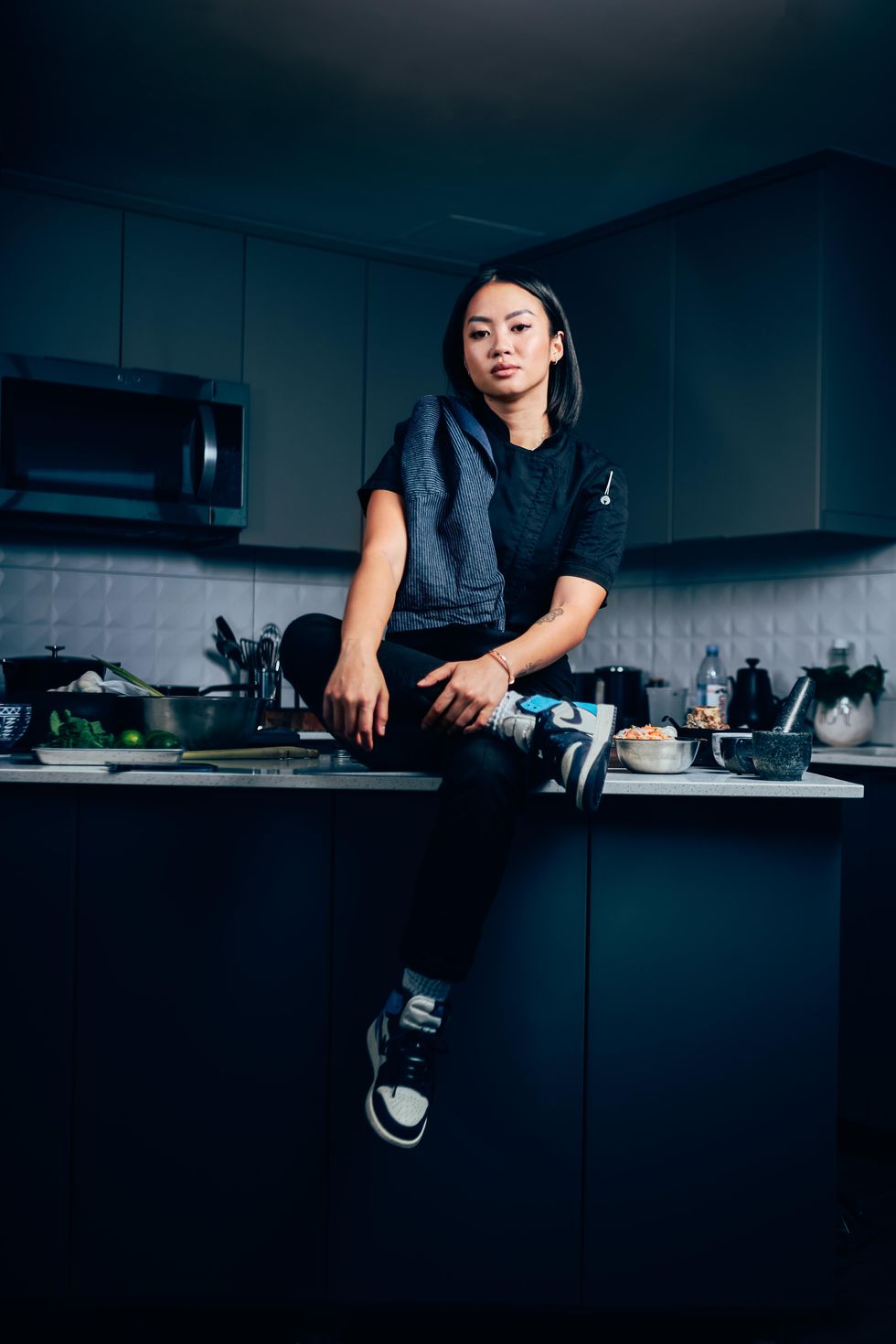
Social media chef Twaydabae first started making videos on YouTube in 2017, focusing primarily on classic mukbangs with the occasional vlog. But, like many during the pandemic, she found herself with more time to reflect, and, amidst the boom of food TikTok, decided one morning that she would start creating and showcasing her own original recipes.
“The first video I ever posted of myself making food was fried rice,” she remembers of her a-ha moment. “The sun was out, my whole family was home, and I was in such a good mood. I decided I would make everyone some fried rice to wake up to.” She adds, “At that point, no one knew I actually knew how to cook. I wanted to show people I could make things in real life.”
@twaydabae Quick and easy #friedrice #recipe #easyrecipe #foodie #food #homecook #howto #howtocook
The fried rice video garnered more than 7 million views. And since then, Tway has amassed more than a million followers across TikTok, YouTube, and Instagram. This growing audience has led to opportunities with increasingly large platforms: She currently hosts BuzzFeed-owned Tasty’s “Making it Big” series and recently competed on an episode of Food Network’s Chopped.
The 24-year-old, whose real name is Tue (pronounced “Tway”) Nguyen, tells PAPER her path toward becoming a food influencer was never linear. After attending culinary school, she initially planned to work her way up the traditional restaurant ladder. But the hours of the kitchen proved unforgiving and the pay meager.
“I just didn't feel like I belonged in the kitchen where it was just so much stress with no reward,” she says. “I was working long hours and getting paid literally nothing. I just wanted to just enjoy my life more. At the time a lot of my friends were consuming content on YouTube. And I was just like, ‘You know what? I can learn how to make videos like this.’”
With videos on how to make rice paper egg rolls and fish sauce, much of Tway’s food draws on her Vietnamese heritage. Born and raised in Vietnam, she moved to the United States when she was just eight. Not knowing how to speak English, she remembers watching cooking videos to help her learn not just the language but also American expressions.
“They threw me into public school after two weeks in America — I did not know a single ounce of English,” she explains. “I watched a lot of Food Network, like Giada [DeLaurentis] and Rachael Ray. I loved the way Rachael Ray pronounced her words. She moves her mouth and lips a lot, and that made it easy for me to mimic.”
For Tway, becoming a food personality has enabled her to speak to other immigrants and first-generation Asian Americans, many of whom, like her, were not taught traditional recipes by their families.
“In Vietnam, my mom didn’t learn how to cook from her mom either,” she explains. “When she married my dad, she had to learn how to cook for his family. She didn’t want my future to be cooking for my husband’s family. She said, ‘You don’t need to worry about cooking — just make hella money.’ That was her thinking, and so I get it.”
Now, she says her goal is to connect with people through food and culture. “I just don't want people to forget their culture, especially Vietnamese people and especially young Vietnamese people,” she says. “My target audience is the kids that just moved out of their parents' house and they're like, ‘I don't know how to make thit kho or I don't know how to make canh chua.’”
Tway’s success hasn’t come without challenges. Even as a food creator, she faces the pressure of being a public figure, including burnout and negative comments from trolls.
“I posted this recipe video during the pandemic, and all of the comments were like, ‘Is she pregnant? Oh shit, she gained weight,’” she reveals. “Growing up in an Asian household, that shit got to me. I was just like, damn, this is a recipe video. Can we focus on that, hmm? I had to really get over that, and realize that's not on me — that's actually on them.”
Regardless, with her continued rise, Tway says she’s optimistic about the future for food creators: “Nowadays, these big companies and brands are realizing we don't need them to put us on — we put ourselves on first. Once you have that power and you really dig deep and stay true to your content, the opportunities are endless.”
Photos by Ryan Feng

